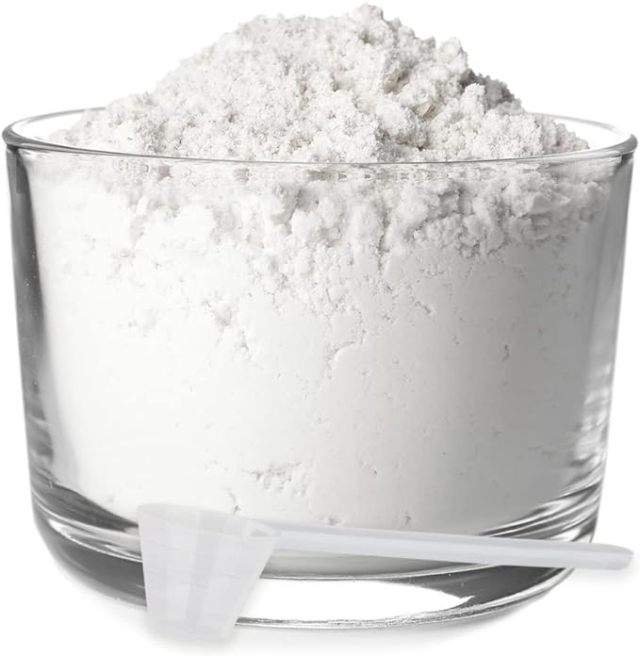Will Silica be a New Supplement of Interest for the Future of Poultry?
A comprehensive body of research has explored the effects of silica supplementation on chickens, shedding light on the remarkable benefits it provides. Notably, a study published in the esteemed Journal of Applied Poultry Research delved into the impact of silica on nutrient absorption in poultry. The findings revealed that silica supplementation exerted a profound influence on the gastrointestinal ecosystem, enhancing the balance of gut microflora, reducing the prevalence of deleterious bacteria, and augmenting the epithelial lining’s nutrient-absorbing capabilities. Consequently, this led to notable improvements in growth performance, heightened feed efficiency, and ultimately, elevated overall health in the avian subjects.

Silica Powder
Moreover, a captivating investigation featured in the distinguished Veterinary Medicine and Zootechnics journal explored the effects of silica supplementation on gut health in chickens. The study unraveled the remarkable ability of silica to fortify the avian gut by fostering a harmonious microbial environment. By modulating the gut microbiota, silica supplementation effectively curbed the proliferation of detrimental bacteria, consequently fostering an optimal gut milieu for nutrient absorption and metabolism. Consequently, chickens experienced enhanced digestive efficiency, improved nutrient utilization, and overall superior health.
These combined studies epitomize the potential of silica as a remarkable dietary supplement for chickens. The findings underscore the profound impact of silica on a multitude of vital aspects, including nutrient absorption, gut health, growth performance, and feed efficiency. While further investigations are warranted to elucidate the intricate mechanisms underlying these effects, the current body of research unequivocally demonstrates the remarkable benefits of silica supplementation in optimizing the health and well-being of chickens.
Determining the exact amount of silica to use in poultry feed can vary depending on various factors, including the specific needs of your flock, the type of feed you are using, and the desired outcomes. It is recommended to consult with a poultry nutritionist or veterinarian to get precise dosage recommendations tailored to your flock’s requirements.
Typically, silica is added to poultry feed as a feed additive or as part of a premix. The recommended dosage can range from 0.5% to 2% of the total feed formulation. However, it’s important to note that the inclusion rate may vary based on the specific product you are using and the manufacturer’s guidelines.
Using Natural Whole Foods
Chickens can consume various foods that are high in silica, which is beneficial for their overall health and well-being. Here are some examples:
1. Oats: Oats are not only a great source of fiber but also contain a good amount of silica. Chickens can enjoy cooked or rolled oats as part of their diet.
2. Barley: Barley is another grain that contains silica. It can be fed to chickens in its whole or cracked form, providing them with essential nutrients along with silica.
3. Strawberries: These delicious berries are not only a treat for chickens but also contain silica. Offer fresh or frozen strawberries as a healthy snack.
4. Cucumber: Cucumbers are refreshing and hydrating for chickens, and they also happen to be a good source of silica. Slice them up or offer them whole to your flock.
5. Bell Peppers: Bell peppers, particularly the red and green varieties, are rich in silica. Chop them into small pieces and let your chickens enjoy the crunchy goodness.
6. Alfalfa: This nutrient-dense forage crop is not only high in protein but also contains silica. Offer fresh or dried alfalfa to your chickens for a boost of essential nutrients.
Remember to introduce these foods gradually and in moderation, along with a balanced diet suitable for chickens. Providing a varied diet ensures they receive the necessary nutrients for optimal health.
Note: Silica is said to not be an essential nutrient for chickens, but including foods that contain silica in their diet can contribute to their overall well-being.
Working closely with a professional will help ensure that you are providing the appropriate amount of silica to optimize the health and performance of your poultry. They will consider factors such as the age, breed, and health status of your flock, as well as any specific challenges or goals you may have.
Remember, it’s crucial to follow proper guidelines and always monitor the birds’ response to the silica inclusion in their feed. Regular observation and consultation with experts will help you make any necessary adjustments to ensure the well-being of your flock.
Candace
Breezy Bird Farms
